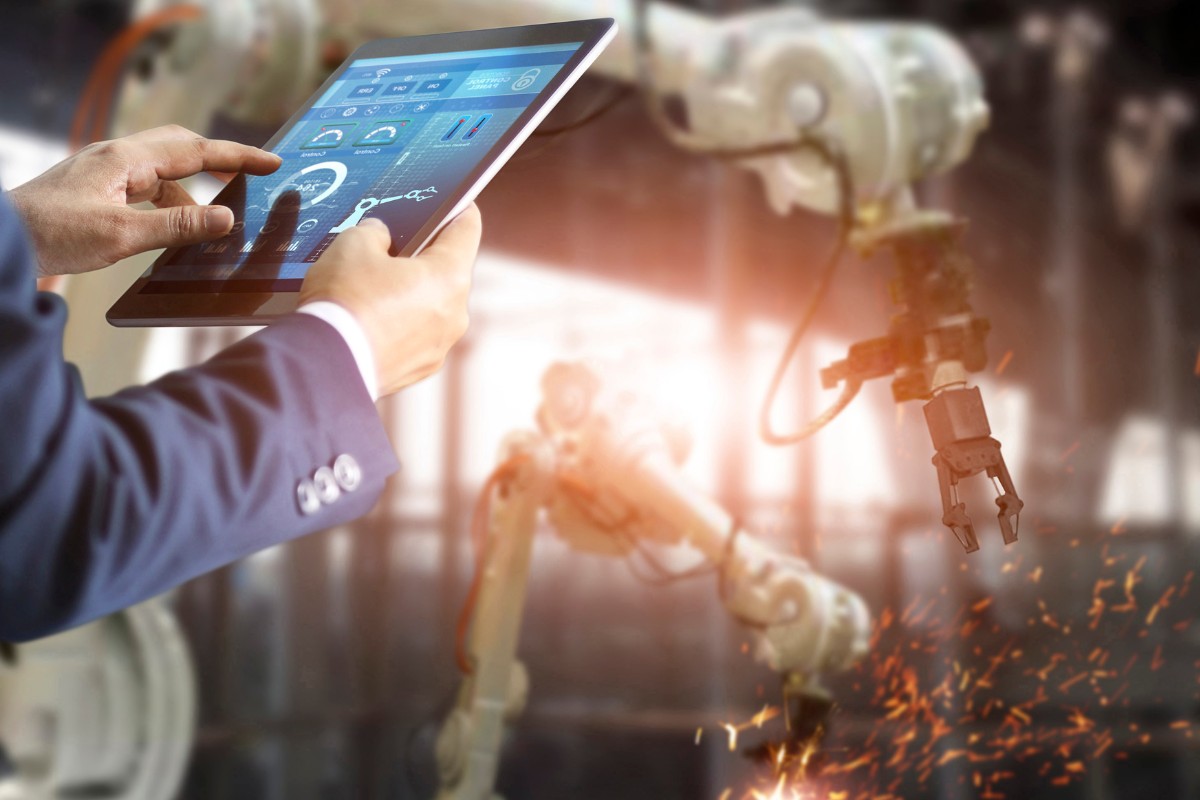Mechanical Engineering in Robotics: Challenges and Opportunities

The field of robotics has seen remarkable advancements in recent years, revolutionising various industries and sectors. At the heart of these technological marvels lies mechanical engineering, a discipline that plays a critical role in the design, development, and implementation of robotic systems.
Though robotics and mechanical engineering are two separate entities, they are certainly related. Robotics refers to designing, building and using robots and the science behind doing so. It uses machines that can think on their own and act accordingly when presented with a situation. Mechanical engineering is different in the way that it refers to the physical tasks involved with the machines, and the design and production behind them. They both, however, revolve around using machines to solve problems.
There have been many developments in robotics and mechanical engineering in recent years, especially with technology advancing at an impressive rate. From robotics being used to automate processes in factories, to the manufacturing industry making use of 3D printing. Of course, this doesn’t mean that there aren’t some challenges that mechanical engineers and robotics need to overcome. In this blog, we will explore the challenges and opportunities that await mechanical engineers in the realm of robotics.
Major Challenges Faced by Mechanical Engineers in Robotics
- Miniaturisation and Compact Design:
Robotics often requires systems that are lightweight and compact, to enhance mobility and manoeuvrability. Mechanical engineers face the challenge of designing intricate mechanisms that can fit within limited spaces while maintaining optimal functionality, all while being robust yet lightweight structures. Achieving miniaturisation often involves overcoming constraints related to power supply, heat dissipation, and structural integrity. This isn’t an easy balance to find, and it’s likely going to take some trial and error.
- Motion Control and Kinematics:
Mechanical engineers are responsible for developing robotic systems capable of precise motion control and manipulation. Achieving fluid movements and accurate kinematics requires a deep understanding of mechanical principles, control systems, and dynamics. Overcoming challenges related to friction, backlash, and vibrations is crucial to enhance the performance of robotic systems, especially when creating robotic arms, grippers, and mobile platforms capable of performing complex tasks with accuracy and efficiency.
- Material Selection and Durability:
Selecting the appropriate materials for robotic components is a critical challenge for mechanical engineers. Robotics often involves operating in harsh environments, such as extreme temperatures, high humidity, or corrosive conditions. Engineers must consider factors like strength, weight, durability, and resistance to environmental factors when choosing materials for various components to ensure long-term reliability and functionality.
- Human-Robot Interaction:
With the rise of collaborative robots (cobots), mechanical engineers must design robots that can work alongside humans safely and efficiently. Ensuring human-robot interaction is seamless and intuitive involves challenges such as designing flexible joints, implementing force and tactile sensing, and developing advanced algorithms for motion planning and collision avoidance.
Opportunities Presented to Mechanical Engineers in Robotics.
- Research and Development:
The field of robotics is a hotbed of research and development, presenting countless opportunities for mechanical engineers. From developing novel robotic mechanisms to enhancing control algorithms and exploring emerging technologies like soft robotics and bio-inspired designs, the scope for innovation is vast. Research opportunities can lead to breakthroughs in fields like medical robotics, autonomous vehicles, and space exploration.
- Automation in Manufacturing:
Robotics is having a big impact on our day-to-day lives, especially as far as automation is concerned. More and more aspects of life are becoming automated, from self-driving cars gaining popularity to self-service checkout counters becoming completely automated. Mechanical engineers specialising in robotics can play a pivotal role in revolutionising manufacturing industries. Automation and robotic systems are increasingly utilised to streamline production lines, improve efficiency, and enhance product quality. Furthermore, the demand for skilled mechanical engineers who can design and implement robotic systems for manufacturing processes continues to grow, opening doors to exciting career prospects.
- Assistive and Medical Robotics:
As the global population ages, there is a growing need for assistive and medical robotic devices. Mechanical engineers can contribute to the development of prosthetics, exoskeletons, surgical robots, and rehabilitation devices, among others. These technologies have the potential to enhance the quality of life for individuals with disabilities and significantly impact the healthcare industry. With robotics taking over these tasks, professionals can work on other tasks that robotics haven’t quite mastered yet. With several job opportunities opening up due to mechanical engineering in robotics, brand new careers are now available to mechanical design engineers, which weren’t an option before the prevalence of robotics.
- Agricultural and Exploration Robotics:
The agricultural sector is witnessing a transformation through the implementation of robotics. Mechanical engineers can design autonomous vehicles, robotic harvesters, and precision agriculture systems to optimise farming practices, reduce resource consumption, and increase crop yields. Additionally, robotics plays a crucial role in space exploration, with opportunities to contribute to missions involving planetary rovers and advanced robotic systems.
Looking to the future:
Mechanical engineering is at the forefront of the rapidly expanding field of robotics, offering both challenges and opportunities. Overcoming the challenges of miniaturisation, motion control, material selection, and human-robot interaction is essential to unlocking the potential of robotic systems. Simultaneously, opportunities in research and development, manufacturing automation, assistive and medical robotics, and agricultural and exploration robotics present a promising future for mechanical engineers. By embracing these challenges and capitalising on the opportunities, mechanical design engineers can shape the future of robotics and contribute to the advancement of society as a whole.
At Redline, we change lives every day building world-class teams for technology companies. Since 1982, we’ve been delivering recruitment expertise to a range of clients and candidates in the Mechanical Design Engineering arena, and our specialist permanent and contract teams can provide the support and guidance you need to hire specialist mechanical talent in the Solidworks, CATIA, AutoCAD or Autodesk Inventor arena. For more information, give us a call on 01582 450054 or email us on info@redlinegroup.com.

